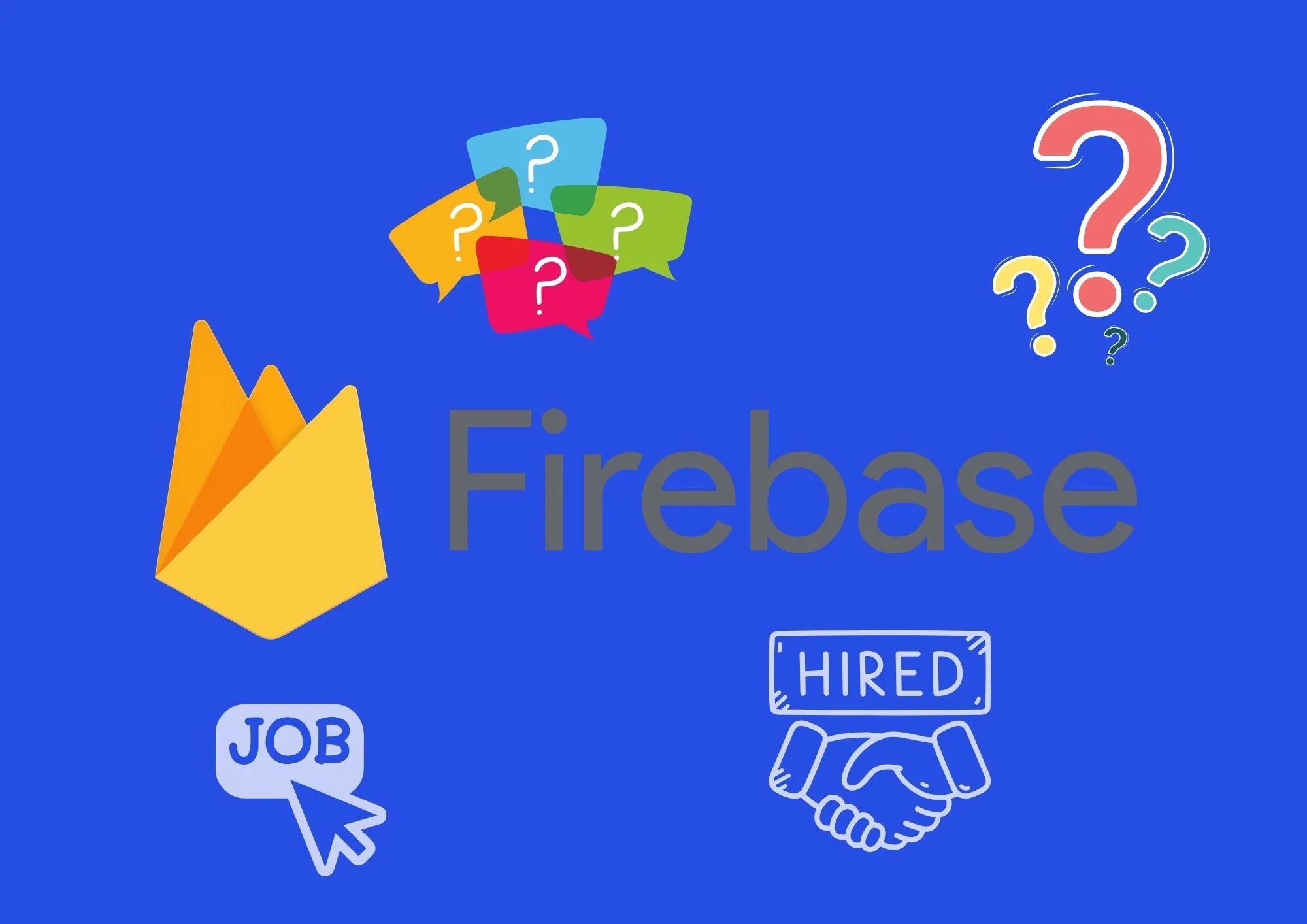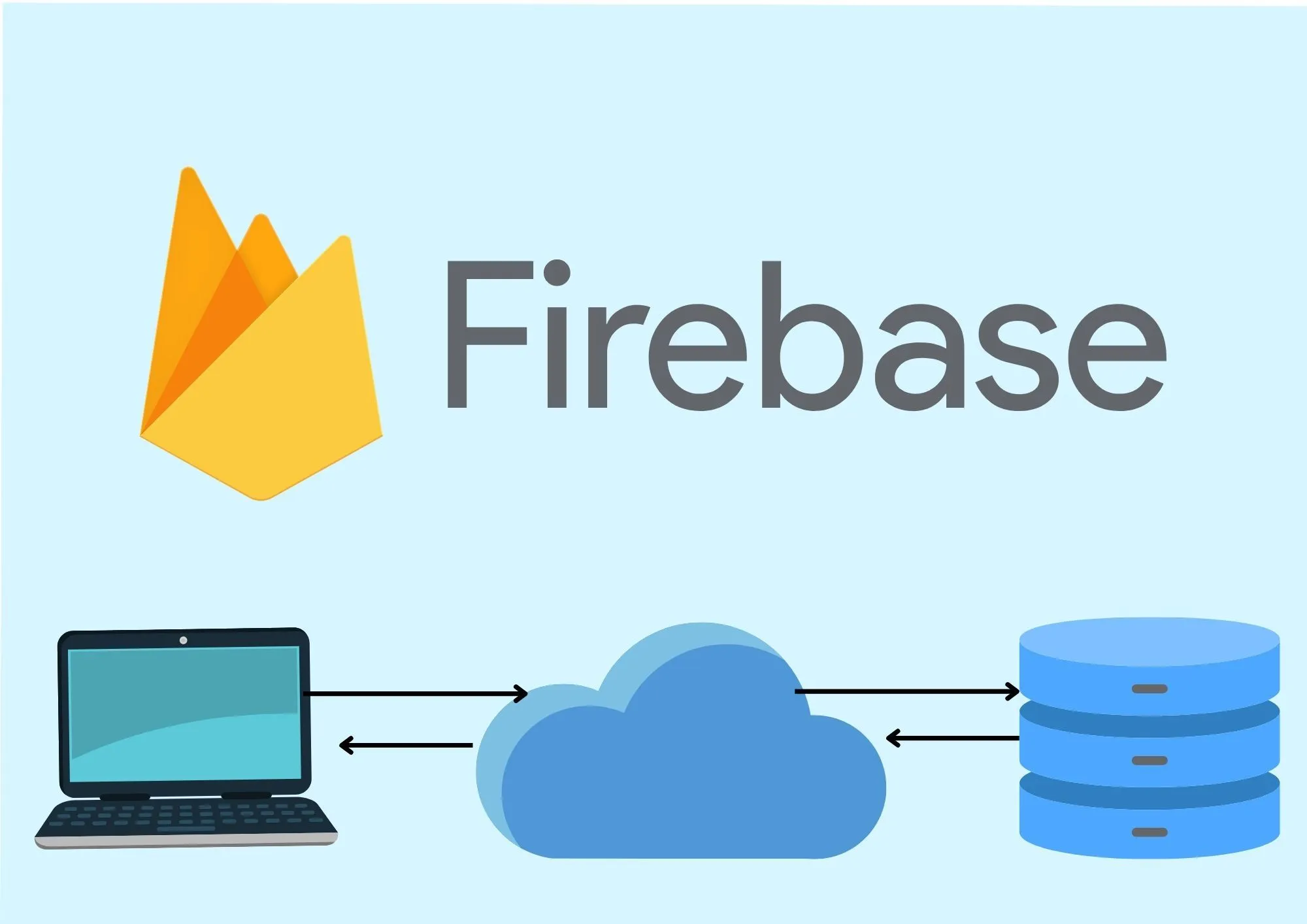
Firebase Interview Questions
Introduction:
Firebase, a powerful platform developed by Google, stands at the forefront of
streamlined app development, offering a rich suite of tools and services designed to
elevate the entire lifecycle of building, improving, and growing applications.
Renowned for its robust infrastructure and ease of use, Firebase revolutionizes how developers approach project creation by providing an array of features such as real-time databases, user authentication, analytics, performance monitoring, and more, all integrated into a single, cohesive framework.
This cloud-based platform not only accelerates development processes but also ensures applications are scalable, secure, and engaging. Whether you're crafting intricate enterprise solutions or fun, user-centric applications, Firebase offers the tools and insights necessary to bring your vision to life with efficiency and finesse.
As a beacon in the realm of app development, Firebase continues to empower developers, enabling them to focus on crafting exceptional user experiences while it handles the complexities of backend infrastructure.
The questions in this article not only aim to gauge your technical acumen but also to refine your understanding of how Firebase's versatile suite of services can be harnessed to build dynamic, efficient, and secure applications. As you navigate through these questions, remember that each one is a stepping stone towards becoming more adept at leveraging Firebase, opening new avenues for innovation and excellence in your projects or forthcoming interviews.
Here are 20 Firebase interview questions designed for professionals, with answers that are easy to understand:
Question1: What is Firebase and why would you use it in a project?
Answer: Firebase is a comprehensive app development platform by Google. It provides a suite of cloud-based tools and services, including database, authentication, analytics, and more, enabling developers to build, improve, and grow their apps efficiently.
Question2: Can you explain the difference between Realtime Database and Firestore in Firebase?
Answer: Realtime Database is a cloud-hosted NoSQL database that syncs data across users in real-time. Firestore is also a NoSQL database but offers richer, faster queries and scales better than Realtime Database. It's the newer of the two and is generally recommended for most cases.
Question3:How does Firebase Authentication provide security to your application?
Answer: Firebase Authentication offers easy-to-use SDKs and ready-made UI libraries to authenticate users to your app. It supports various sign-in methods and integrates directly with Firebase's security rules to ensure only authorized users can access resources
Question4: What is Firebase Cloud Messaging (FCM), and how does it work?
Answer: FCM is a cross-platform messaging solution that allows you to send messages and notifications to users across different platforms (Android, iOS, web). It provides a reliable and efficient connection between the server and devices that allows for the delivery of messages at no cost.

Question5: How do Firebase security rules work and how would you write them?
Answer: : Firebase security rules provide robust, server-side validation. They are used to define who has read or write access to your database, ensuring data privacy and security. Rules are written in a JSON-like format and are highly customizable to suit your app’s needs.
Question6: What are Firebase Cloud Functions and what are their common use cases?
Answer: Cloud Functions are single-purpose JavaScript functions that are executed in a secure, managed environment. They are commonly used for database triggers, cleaning up data, sending notifications, or running complex business logic in response to events triggered by Firebase features and HTTPS requests.
Question7: Can you explain the purpose of Firebase Analytics and how it helps in app development?
Answer: Firebase Analytics provides free, unlimited reporting on up to 500 distinct events. It helps in understanding user behavior, measuring ad effectiveness, and making informed decisions about app marketing and performance optimizations.
Question8:How does Firebase handle offline capabilities?
Answer: Firebase apps remain responsive even when offline as the Realtime Database and Firestore cache data on the client-side. Once connectivity is restored, the changes are synced with the server
Question9: What is Firebase Dynamic Links and how are they useful?
Answer: Firebase Dynamic Links are smart URLs that dynamically change behavior to provide the best experience across different platforms. They allow you to direct users to any location within your iOS or Android app, even if the app is not installed when the link is opened.
Question10:How does Firebase Test Lab help in app testing?
Answer: Firebase Test Lab provides cloud-based infrastructure for testing Android and iOS apps. Developers can test their apps on a wide range of devices and configurations, ensuring that the app performs well under diverse conditions.
Question11: What is Firebase Crashlytics, and how does it contribute to app stability?
Answer: Firebase Crashlytics is a real-time crash reporting tool that helps you track, prioritize, and fix stability issues that erode your app quality. It efficiently groups crashes and highlights the circumstances that lead to them.
Question12: How would you implement user authentication using Firebase?
Answer: User authentication can be implemented by integrating Firebase Authentication SDK into your app. You can enable various sign-in methods (email/password, phone, Google, Facebook, etc.), and use the Firebase console to manage and monitor your authenticated users.
Question13: Can you explain data indexing in Firestore and why it's important?
Answer: Indexing in Firestore speeds up query execution. Each query runs against a pre-built index, ensuring that the query's performance scales with the size of the result set, not the size of the data set.
Question14:How do you monitor app performance using Firebase?
Answer: Firebase Performance Monitoring is a service that helps you gain insight into the performance characteristics of your iOS, Android, and web apps. You can monitor slow and frozen frames, track network requests, and get detailed insights to improve your app's performance.
Question15: What are Firebase Remote Config and its use cases?
Answer:Firebase Remote Config is a cloud service that lets you change the behavior and appearance of your app without requiring users to download an app update. It's used for A/B testing, feature flagging, and delivering customized content to certain users.
Question16: How does Firebase integrate with other Google services?
Answer: Firebase integrates seamlessly with various Google services like Google Ads, AdMob, Google Play services, and more. This integration helps in better analytics, ad targeting, and maximizing the overall user experience and app performance.
Question17: Explain the importance of Firebase App Distribution
Answer: Firebase App Distribution makes it easy to distribute pre-release versions of your app to your trusted testers. This helps in getting valuable feedback before the full-scale release and ensures that the app is well-polished and bug-free.
Question18: What is the role of Firebase in app monetization?
Answer:Firebase provides integration with AdMob by Google, which allows you to monetize your app through in-app advertising. It also provides detailed analytics to optimize the ad performance and user engagement.
Question19:How does Firebase assist in resolving app crashes?
Answer: Firebase Crashlytics not only reports crashes but also provides insights into the potential causes of crashes. It groups crashes by similarity, highlights the impact on users, and provides the stack trace to help fix the issue
Question20: Describe how you would use Firebase's Realtime Database for a chat application.
Answer:In a chat application, Firebase's Realtime Database can be used to store and sync chat messages in real time. Each message can be a child node in your database, and listeners can be attached to these nodes. When a new message is added, all app instances subscribed to these nodes will receive the new message instantly.
Full Stack Development Courses in Different Cities
- Srinagar
- Bangalore
- Gujarat
- Haryana
- Punjab
- Delhi
- Chandigarh
- Maharashtra
- Tamil Nadu
- Telangana
- Ahmedabad
- Jaipur
- Indore
- Hyderabad
- Mumbai
- Agartala
- Agra
- Allahabad
- Amritsar
- Aurangabad
- Bhopal
- Bhubaneswar
- Chennai
- Coimbatore
- Dehradun
- Dhanbad
- Dharwad
- Faridabad
- Gandhinagar
- Ghaziabad
- Gurgaon
- Guwahati
- Gwalior
- Howrah
- Jabalpur
- Jammu
- Jodhpur
- Kanpur
- Kolkata
- Kota
- Lucknow
- Ludhiana
- Noida
- Patna
- Pondicherry
- Pune
